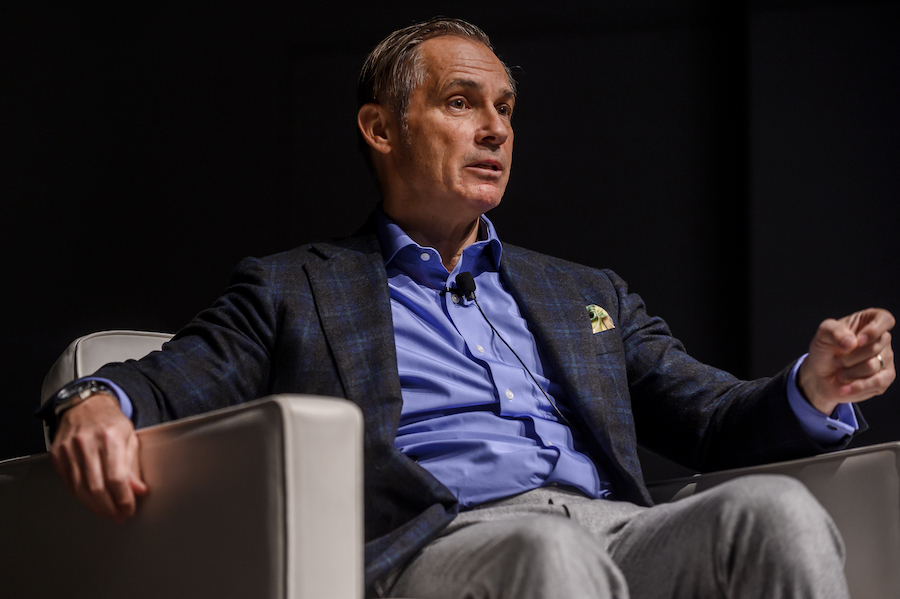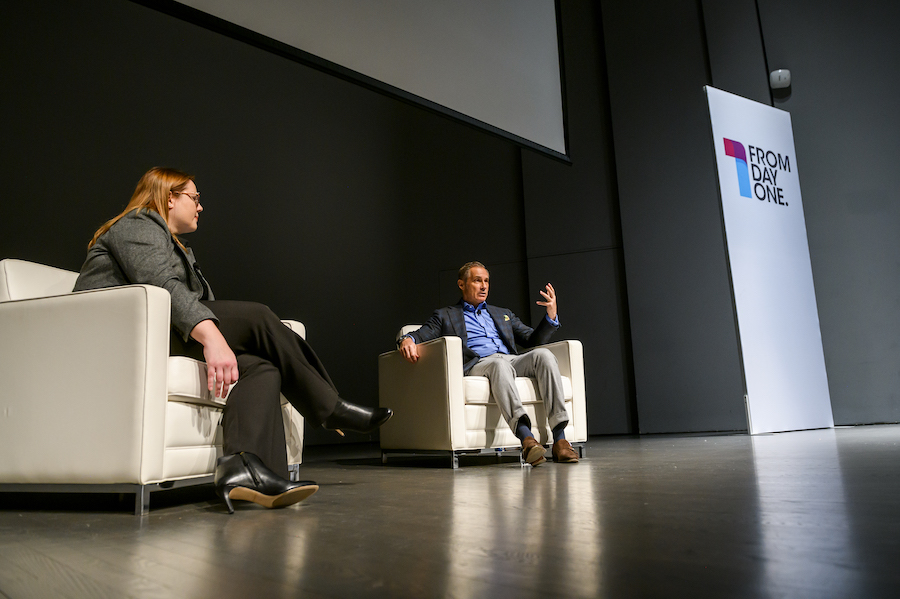The Role of the CHRO in Shaping the Employee Experience


A year ago, the Great Resignation was spurring HR leaders across the country to reconsider their approaches to recruitment and retention as Americans abandoned their jobs in droves. The “quit rate” in the U.S. hit a two-decade high in late 2021 and the trend continued into 2022, with workers citing factors ranging from a lack of opportunities for advancement, employer inflexibility and feeling disrespected at work among the top reasons they were moving on, according to a Pew Research report.
Now, with a potential recession looming and layoffs roiling the technology sector, employers have regained some leverage and conversation could look different.
But should it?
The HR leader of Northwestern Mutual, the Milwaukee-based insurer and investment firm that consistently ranks among the country’s best places to work, says it’s a mistake for companies that have taken the lessons of the Great Resignation to heart to abandon those learnings now that the labor-market dynamics are shifting.
Northwestern Mutual didn’t experience a spike in turnover during the Great Resignation, and doesn’t plan to lay off staff or strong-arm its workers in the event of a downturn.
“Pre-pandemic, we didn’t have this attitude that the employer controls everything, and therefore we're going to put all these draconian things in place,” said Don Robertson, Northwestern Mutual’s executive VP and CHRO, during a conversation with Bloomberg’s Chicago bureau chief, Isis Almeida, at a From Day One conference in Chicago.
The company is sticking with the same approach now.
“We play a long game,” Robertson said. “Anytime we hire an employee, they’re part of us, and we want them to be with us for their entire career,” Robertson says.
That commitment to longevity isn’t limited to avoiding layoffs. It applies equally to a culture that’s focused on fostering connections and opportunities for career-long growth.

“We’re very much focused on really creating a personal experience for every person—how they grow their career, how they develop, how we interact with them,” said Robertson. “As a result, we’ve just been much more intimately connected to our employees.”
Of course, pandemic-era shifts toward remote work can make those sorts of connections more challenging. Almeida asked Robertson about how Northwestern Mutual is approaching hybrid work arrangements as many employers are calling their workers back to the office.
Robertson said there’s value in gathering in person, and that some teams will gather in person more than others—but that the company isn’t planning to turn back the clock to its pre-pandemic culture. Instead, he’s focused on ensuring that Northwestern Mutual’s culture remains strong regardless of where employees do their work.
“I don't think engagement is about proximity; it’s about connecting with people,” Robertson said.
Building and maintaining those connections sometimes means tailoring leadership styles to the specific contours of remote work. At Northwestern Mutual, for example, managers are now trained to schedule more frequent one-on-ones with employees to facilitate relational connection, because impromptu water-cooler gatherings don’t happen as frequently.
“You have to be much more intentional about connecting,” said Robertson.
Robertson also cautioned against focusing on productivity metrics, which can be a factor in calling employees back to the office. He said Northwestern Mutual bases its evaluations on performance rather than productivity—and had the two best years of its 166-year history during the pandemic, when remote work was the norm.
Embracing remote workers also opens up the potential to build remote teams. Robertson said it has become easier for Milwaukee-based Northwestern Mutual to hire tech talent, for example, by expanding its footprint and adding employees in cities such as Atlanta, Denver and San Francisco. Yet Northwestern Mutual’s emphasis on connectedness also comes into play there: rather than hiring isolated employees in far-flung regions, Robertson said the company aims to add clusters of employees in target markets.
Community-building is just one of Northwestern Mutual’s points of emphasis regarding employee experience. The company also has altered its approach to accommodate young employees, for example, who expect to be more involved in high-level projects early in their careers than workers in previous generations. The idea, Robertson says, is to ensure that the company shows that it values its people as essential stakeholders rather than disposable parts.

“If you want to be a talent magnet to those employees out there, you need to be thought of as a company that actually puts the employee on the same plane as the shareholder or customer,” Robertson says.
The value of that sort of intentionality also applies to diversity, equity and inclusion (DEI). In response to a question from Bloomberg’s Almeida, Robertson said Northwestern Mutual has remade its approach to hiring and developing diverse employees over the last five years, substantially increasing both the overall number of women and Black employees, but also the number of people in both groups who hold leadership positions. The key, Robertson said, is structure: holding regular meetings with groups of diverse employees to ensure that their voices are heard, and ensuring that hiring processes includes slates of diverse candidates.
“Be very intentional, but with a lot of action,” Robertson said. “Your strategy has to match your operational rigor.”
There’s a lesson there for companies that find themselves in a reactive mode as the economy swings from the pandemic and Great Resignation to an era when employees are returning to work—and may need work more than work needs them.
Rather than press their advantage, those companies are well-served to foster cultures that will endure across trends and seasons, and that value employee well-being on the same level as shareholder returns.
Steve Hendershot is an award-winning multimedia journalist and bestselling author. He hosts the Project Management Institute’s top-rated Projectified podcast and operates Cedar Cathedral Narrative Studio in Chicago.
The From Day One Newsletter is a monthly roundup of articles, features, and editorials on innovative ways for companies to forge stronger relationships with their employees, customers, and communities.